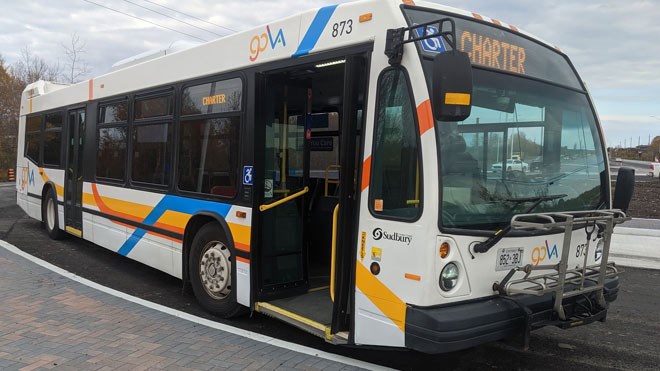Stage one of the province's framework for reopening the province got underway on May 18 and the city of Greater Sudbury will be following the province's lead when it comes to reopening services.
City council received a COVID-19 update during their regular meeting of council on Tuesday, with executive director of strategic initiatives, Ian Wood, providing an update as to where the city is now, and where it is going in the weeks and months to come.
Tuesday's report indicated that the city is looking at a financial impact of $6.8 million by the end of June, with $5.6 million of that coming from expenditures related to the COVID-19 response, of which $1.1 million is incremental.
"The corporation’s priority in this initial stage will be to restore permitted services and to continue analysis of remaining temporary service changes and planning for stages two and three," said the report that Wood presented.
Some of the permitted services included in stage one have already been brought back online, including municipal boat launches, resident access to landfills, opening of off-leash dog parks, access to community gardens and more.
Each stage could last between two to four weeks, and when it comes to future restorations in stages two and three, there will be a number of considerations on the table for the city of Greater Sudbury.
"Physical distancing, personal hygiene and other directives must be respected within our workplaces. In some cases, such as transit and customer service counters, physical barriers need to be installed. This work is underway," said Wood.
"A new Plexiglass barrier for transit drivers is being designed and installed on buses for added driver safety."
On the subject of the city's GOVA transit system, fares could be reintroduced by stage two, which could be in as little as two weeks, or in up to four weeks from May 19.
The transit system has undergone a number of changes as far as routes and schedules, along with waiving fares in the midst of the current pandemic.
Also included in the city's plans for recovery stage two is the gradual return of service technicians to the Lorne Street garage facility.
The waiving of transit fees has been a major hit to the city's revenue stream throughout the course of the pandemic, with an estimated $2.2 million lost between March and the end of June.
"Even as we restore (transit) services, we don't fully understand how the public will respond," said Wood.
"Even if we went back to full transit service, certainly I think it's questionable as to whether or not the number of riders would return. Even something like the discussion in the public this week about Laurentian University running a good number of online classes for the fall, what does that mean in terms of the transit service to Laurentian and the ridership volumes and fares? These are questions we don't know the answers to."
A more detailed report on the financial impacts associated with COVID-19 will be coming to the city's finance and administration committee at their next meeting.
On the ground level, the city has other considerations to look at before they are able to undertake some of the steps associate with stage two of their service restoration.
The city has redeployed a number of employees for more boots on the ground at high priority essential services like Pioneer Manor, and those workers are not able to return to their regular duties at the city until they are replaced.
This means some services will be unable to be fully restored until enhanced services are returned to a “normal” state.
Opportunities to restore revenue generation may be prioritized while other services may be adjusted or extended, resulting in cost savings. Nonetheless, there is a risk that user fee revenues will not recover to pre-COVID levels for some time.
The city will also be maintaining services that have been enhanced during the pandemic, including emergency shelters and long-term care. It's not clear at this time when, or if, these changes will be able to revert back to normal.
For the third stage of recovery, not much is known at this point in time as there have been no indications from the province as far as definitions to the physical distancing, group size regulations or guidelines or office operations or public services that will apply in future stages or in the new normal period.
"For planning purposes, staff assumed that the provincial state of emergency will remain in place until the end of June and that the City’s state of emergency will remain in place until that point," said the report.
"In consultation with other municipalities, most have indicated that they will announce decisions regarding summer recreation and waterfront programs by the end of May."
You can read the full report here.
